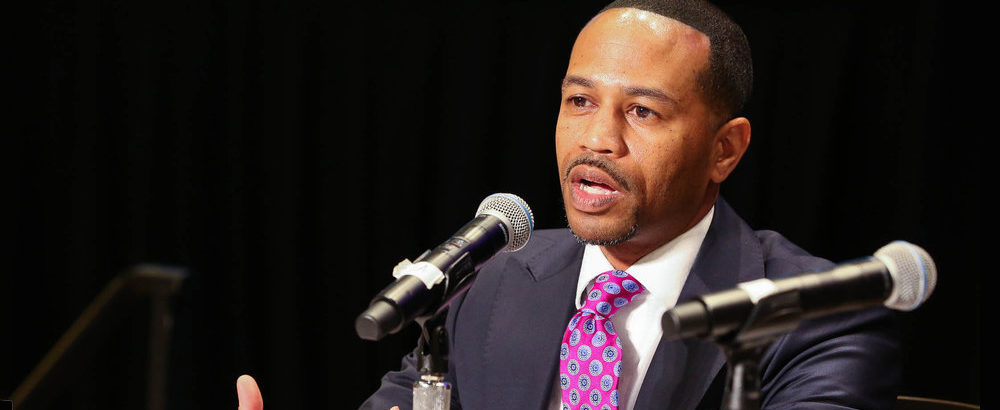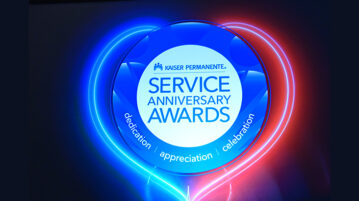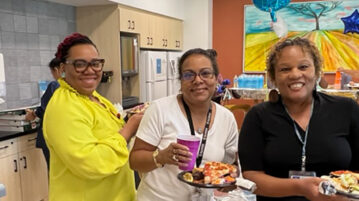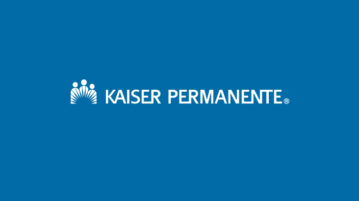
Kaiser Permanente is well known in the health care industry for our commitment to diversity and a culture of inclusion — among our employees, physicians, members and customers. Kaiser Permanente nationally has been recognized by DiversityInc for several years as a leader in this area, and earlier this year included us in their Top 50 Hall of Fame. Here in the Mid-Atlantic Armond Kinsey, Chief Equity, Inclusion & Diversity Officer, works with HR and an array of other departments to ensure we’re living up to – or going beyond – this promise.
Last week, at a DiversityInc conference, “The Pros and Cons of Unconscious Bias Training,” Kinsey spoke on a panel titled Unconscious Bias Training Isn’t the Silver Bullet, What Next?”. Kinsey, alongside leaders from PwC and Amaren, shared what Kaiser Permanente is doing to go beyond unconscious bias training. We asked him to share some of his wisdom with us.
Q: Tell us what unconscious bias is, and why it matters to KP and to our employees.
Unconscious biases are learned stereotypes that are automatic, unintentional, deeply engrained, universal, and able to influence behavior. Everyone holds unconscious beliefs about various social and identity groups, and these biases stem from one’s tendency to organize social worlds by categorizing.
What matters for us at Kaiser Permanente is how these biases impact the way we approach and interact with our colleagues and our members.
Q: If you could share your “top three” tests with leaders from other companies about unconscious bias and other diversity and inclusion trainings, what would you tell them?
This is a tough question, since so much of what I’d suggest would depend on specifics about a company – their employee base, culture, existing training and resources, and so on. But two words I think are key, collaboration and integration.
Generally, I’d suggest starting with existing resources. Look at educational resources that exist and see if you can incorporate this kind of training into existing programmatic efforts. For instance, we have incorporated many of the principles of unconscious bias training in the KP Experience Standards training in which all employees are participating. We don’t want to always develop “yet another” training, but to leverage what’s already being done.
Another important principal is to build a culture of empathy for all employees and members. One of the great ideas I heard at the DiverstyInc conference is providing opportunities for our employees to shadow one another for a day or two. This provides us a first-hand window into another person’s day, and certainly builds more empathy and understanding. A culture of empathy also includes supporting assumptions of good intent and, relatedly, space to make mistakes and learn from them.
Last, but not least, I’d suggest inclusion of practical examples in any training. It’s important that employees see how they can use the information we’re sharing in their work (and life) every day, and how it will make their jobs easier or more enjoyable. Going beyond the theory to provide specific examples and tools is key to making this training relevant and useful for all employees.
Q: What’s going on in KP MAS for this? Are we offering unconscious bias training for our employees?
We do have a few trainings addressing unconscious bias training on KP Learn, and as I mentioned have incorporated many elements into the Experience Standards training. We’re also working on additional training to begin in 2019.
Q: What are some workforce diversity challenges that are unique to the health care industry?
Health care has some challenges in this area that are unique, and some that are common to many industries, like hiring practices. As we heard from several science, health, and technology employers at the DiversityInc Conference, finding diverse candidates in science- and technology-oriented fields can be a challenge because of broader issues like educational and professional opportunities and admission to professional schools. So, one challenge has been finding talent, giving people opportunities to be properly developed, and then having them in a position to succeed in an effective way. Diverse talent exists, I’ve never doubted that, it is up to us to take deliberate actions to go after it and attract that talent to Kaiser Permanente. It’s also our responsibility to ensure we eliminate any systematic biases that may exist in our hiring practices to that we ensure an equitable experience for all candidates.
In this region, I’ve also been extremely thrilled to be able to support initiatives within KP to help build a more diverse workforce for the future. My team and I have been able to work on an array of career- and college-ready programs with Community Health and others, including Ready for Work, a partnership with Venture Philanthropy Partners (VPP) in three Prince George’s County Public High Schools, P-TECH in Baltimore City, and internship opportunities throughout the region In addition, my team partners very closely with the Talent Acquisition team to source and recruit diverse talent.
It’s also important to ensure we’re all aware of the impact of unconscious bias, especially our own biases. A diverse and inclusive workforce gives us a competitive advantage in the marketplace. It makes Kaiser Permanente a better place to work and a place of choice to receive care, and it enables us to be a better partner in the communities we serve.




